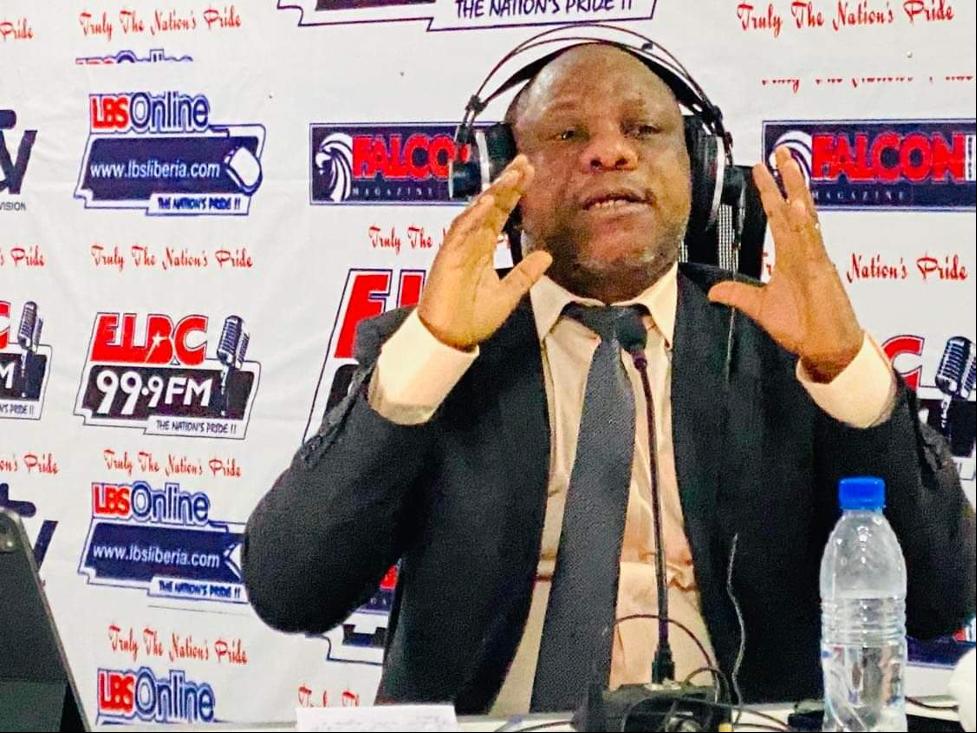Africa-Press – Liberia. Samuel Tweah, the Minister of Finance and Developmental Planning (MFDP), is calling on the Liberian public to exercise restraint as the Weah-led government is taking up what he termed as “tough choices” to deal with the issue of electricity in the country.
“It takes some time, it takes some patience, it takes some courage, it takes some honesty to explain to the Liberian people as I am doing right now, to come clean and not hide anything from them –all of the policy tools are on the table and ask them (Liberians), let’s bear patience; we will increase the capacity, we will better manage the load shedding. When we get through the next rainy season, when we get in January next year, we are not going to be in this same path,” Minister Tweah said.
The issue of a power shortage, especially during the dry season hampers the smooth operation of many businesses. Also, many homes are left without electricity but the Minister, speaking at the Super Morning Show on ELBC radio Wednesday said, the government is taking stringent measures to deal with the electricity problem.
During the dry season the Mount Coffee Hydro produces lesser power because of the low flow of water from the St. Paul River. Minister Tweah said the government is thinking about bringing the CLSG power to fill in the electricity gap.
“The CLSG project is on but we have to make some tough choices and tough decisions right now,” the Finance Minister stressed.
To start the CLSG project, Minister Tweah said, the government needs to pay US$10.4 million. He added that the real cost of the electricity that comes from neighboring Ivory Coast is US$3.6 million a month, the country will have to pay.
Also, Minister Tweah said the country will have to pay for two months – that is US$7.2 million for what he termed as security deposit before the CLSG project takes full effect.
Minister Tweah added that the Liberian government owes their Ivorian counterpart a sum of US$9 million for cross border trade of electricity in Maryland and Nimba Counties as the Liberia Electricity Corporation has not been paying the Ivorian government for the last three years.
“The Ivorian government says before we start CLSG, you have to put two million down and the remaining seven million, the government of Liberia will have to pay US$550,000 every month until the nine million is wiped out,” he said.
Minister Tweah added: “Also, the Liberian government will have to pay US$62,000 every month for the transmission of the line to the management of the CLSG.”
All of these, the Minister added that to get the CLSG project, the country will be prepared to pay an amount of US$48.8 million between now and December adding that as Minister of Finance he cannot assure that the government of Liberia has such amount to commit to the CLSG project as it is not in the current fiscal budget.
According to the Minister of Finance, even if the government signs the agreement with CLSG, when the rainy season comes in two months from now the country will have adequate power from the Mount Coffee Hydro Plant.
“The thing is that when we sign this thing and when the rainy season comes, two months from now, our hydro will come back to its full capacity and we are still going to be paying US$3.6 million every month while we have our hydro running at full capacity. And so, these are the things we are studying and these are the critical decisions we have to make,” Minister Tweah said.
According to the Minister, even if the government will have to cut its expenditure by 50 percent, an amount of US$29 million will still be made available by the CDC-led government.
“So, that is the choice that we have. It is an expensive preposition, we use it for one or two years and by the time we get all of our electricity infrastructures some of these stuffs will drop down,”
Minister Tweah added that the Legislature is calling for an extensive consultative meeting to look at what he termed as a critical issue. He added that President Weah has mandated that the government look at the situation as the current fiscal budget space is a challenge.
“Somebody says look, it is not going to be a smart thing right now for you to commit US$29 million -we got two more months then we will be free. We are going to use the rainy season time to plan better for the dry season. I do not think it will be a good use of the Liberian people’s money to lock them in for these two months at the cost of US$29 million and in two months’ time you will not need all the current, we will be wasting the money,” he added.
For More News And Analysis About Liberia Follow Africa-Press






